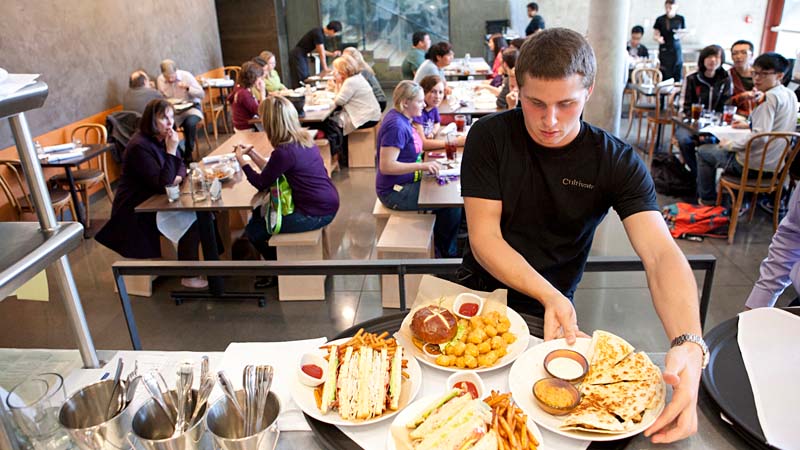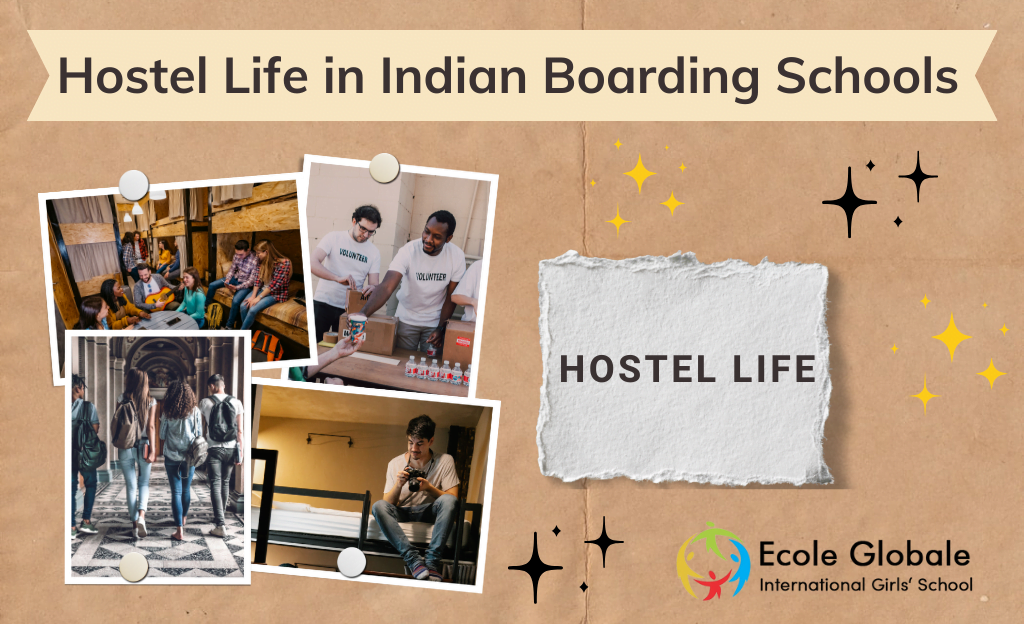Hostel life in Indian boarding schools is a unique experience that offers students an opportunity to learn and grow in a safe, supportive environment. For many students, it is the first time they are away from their families, and living in a hostel can be both exciting and challenging. In this blog, we will explore the different aspects of hostel life in Indian boarding schools and how it can shape students’ personal and academic growth.
Living Accommodation

Individual rooms, on the other hand, offer students more privacy and independence. These rooms are usually shared by two students and have their own attached bathroom. Students who prefer a quieter, more private living space may opt for an individual room.
Meals and Dining

Hostels in Indian boarding schools provide meals to students, usually three times a day. The meals are healthy and nutritious, with a variety of options to cater to different dietary requirements. Dining halls are the central gathering point for students during meal times, and it is an opportunity for them to socialize and bond with their peers.
Students are encouraged to participate in the mealtime routines, such as helping with setting up and cleaning up after meals. This promotes a sense of responsibility and teamwork among the students.
Academic Support

Hostels in Indian boarding schools provide academic support to students through study halls and tutorial sessions. Study halls are designated times when students can study and complete their homework in a quiet, supervised environment. Tutorial sessions are one-on-one or small group sessions with teachers or peer tutors, where students can ask questions and receive additional academic support.
This academic support is essential for students to succeed academically, and it also promotes self-discipline and time management skills. Students learn to balance their academic and social lives, which is a critical skill for their future success.
Extracurricular Activities
:max_bytes(150000):strip_icc()/RoboticsSTEMprogramkids-fd6b3d55111d48ecbbd96614728e4cac.jpg)
Hostels in Indian boarding schools offer a variety of extracurricular activities, such as sports, music, and drama. These activities are an excellent way for students to explore their interests and develop their skills outside of the classroom. They also provide a break from academic work and promote a healthy, active lifestyle.
Participating in extracurricular activities also helps students build leadership, teamwork, and social skills. It provides a platform for students to interact with their peers and form long-lasting friendships.
Discipline and Security

As per research conducted by Schools in India, Hostels in Indian boarding schools maintain strict discipline and security measures to ensure the safety of students. Hostel wardens or housemasters are responsible for the student’s well-being and safety. They monitor the students’ activities and ensure that they follow the hostel rules and regulations.
Security measures such as CCTV cameras, restricted access to hostels, and regular patrols by security personnel are also in place to ensure the safety of students.
Roommates and Dorm Life

Sharing a dorm room with another student can be an enriching experience. Boarding schools often assign roommates based on age, grade level, and interests. This can be a great way for students to form lasting friendships and learn to live with others. However, sharing a small space with someone can also be challenging. It’s important for students to communicate openly with their roommates and set boundaries to ensure a positive living experience.
Dorm life also includes shared spaces such as bathrooms, study areas, and common rooms. These spaces are often cleaned and maintained by school staff, but it’s important for students to take responsibility for keeping them tidy and respectful. Students are also typically required to follow certain rules and regulations when it comes to noise levels, curfew, and guests in the dorms.
Meals and Dining Hall

Most boarding schools provide meals for their students in a central dining hall. This is a great opportunity for students to socialize with their peers and teachers outside of the classroom. Boarding schools often offer a variety of meal options to accommodate different dietary needs and preferences.
However, dining hall etiquette can be a bit different from eating at home. Students are typically expected to dress appropriately, use proper table manners, and clean up after themselves. Many schools also have assigned seating arrangements, which can be a great way to encourage students to get to know different people and foster a sense of community.
Conclusion
Hostel life in Indian boarding schools is an enriching experience that offers students an opportunity to learn and grow in a safe, supportive environment. The living accommodations, meals, academic support, extracurricular activities, discipline, and security measures provided by the hostels are crucial for the student’s personal and academic growth. It is a unique experience that prepares students for their future academic and personal lives. Parents who are considering enrolling their children in a boarding school should research the different hostels available and speak with the school administrators to learn more about the benefits of hostel life.






